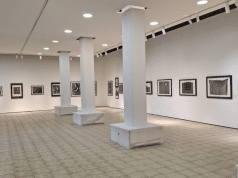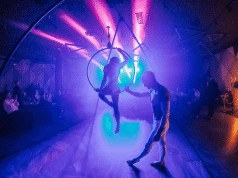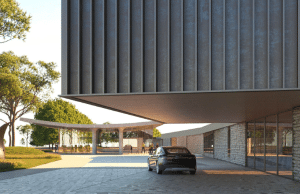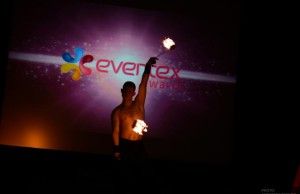Any resemblance to real life is purely coincidental
When you step into a convention centre lobby you instantly know what to expect. Some centres are full of warmth and kindness, mainly furnished by a woman’s hand – attention to detail, flowers, the general fragrance and the consideration for the well-being of the participants go hand in hand with the aroma of a freshly ground coffee. In such an atmosphere the at times painstaking wait for a name badge is not a burden, as you are rewarded with the genuine kindness and friendly smiles of the staff.
But then there are the times when not one thing goes wrong, but everything seems to go the wrong way. At the registration desk they can’t fine my name, even though I am a speaker at their event, I am listed in the official programme and this is even stated on the participant badge. Nobody greets me or escorts me to the hall, because the staff is preoccupied by whatever it may be on their mobile phones. The programme has not been on track since the morning; it has been prolonged by all the questions from the audience after the first session where three self-proclaimed ‘kings of the industry’ were boosting their egos on stage. The lunch break should have started an hour and a half ago, while the croissants provided by a local sponsor that hasn’t yet heard about the trans fatty acids are being served…
When we eventually walk into the hall there are no vacant chairs at the back, but at the same time nobody dares to sit in the first row. In the background we can hear the sound of music that penetrates into the room from the neighbouring hall, where the sound check for a large dinner party is being performed. Nobody apologizes for the noise; the organisers just take on an appearance of being mildly deaf.
When I finally raise my courage to move forward, the whole hall is staring at me like I am a Martian who has just entered the scene of a horror movie. The temperature in the hall is a chilling 18 degrees, empty bottles of water lie on the floor all around me. I enter in the middle of an ego trip of one of the participants who is asking something that neither the speakers, nor the participants understand (apparently, it has something to do with frustrations and conflicts from childhood). Behind me I see an acquaintance of mine who is turning her eyes and is caught in the middle of the row, making an easy escape from the hall not an option. I am captured by this very moment that is now being transformed by a righteous character who thinks he can solve all the problems of this world. The endless topic of relations between hotels and agencies, which cannot be brought to an end by even the oldest and wisest of the speakers, begins.
I look down to see magazines from different sponsors lying scattered about the floor. When I finally get the chance to escape the first row and head to the reception, nobody can tell me when the programme will actually end. Everything is being filmed and all of this nonsense will be captured and pumped into a digital eternity. Any participating youth has checked out long beforehand and is by now hooked up to social networks somewhere and laughing at one of their countless favourite YouTube videos. When I finally exit, due to the delay I find myself in the middle of caterers rushing to prepare the hall next door for the evening event. From the hall I am directed to the side aisles and on to the street, which seems like a channel of salvation from the centre for self-realization and those in need of therapy I have just been with.
It is then that I realize the magnitude of the power of events. I think of the incredible power that modern methods offer for creating memorable events, something that we use and simply call Power to the meetings.
Not only the power of satisfied participants, but also the power of enthusiasts is invaluable. It requires careful planning and a very hard working team of professionals, those who are aware that they are only as good as their last event. The secret and core are still the well written stories that exceed expectations of participants and teach them new values and deliver knowledge. Everything has to have a good rhythm. With rhythm we bring parts of the event together and put them into a meaningful chronological order. People instinctively react to rhythm, so thinking about it is one of the fundamental tasks that organisers have. You need to maintain an appropriate environment so that the debate among the participants, but especially between the motivators and provocateurs, can start.

Various models of the layout, like “open space”, “open fishbowl” or “word cafe”, will immediately improve communication and bring it to a much higher level than in the classical classroom layout. Knowing how to brief the speakers is also important; it is crucial that in their performance they also include elements of interaction, which should then be further encouraged by a top moderator.
Successful event organisers use a lot of love and positive energy when organising an event. They know how to provide the flow of energy between organisers and participants, between speakers and audience, between sponsors and participants. The congress venue also needs to have its own flow, such as seen at rock festivals or large airports. But, above all, we can create good energy if we include three basic elements: first of all is the element of surprise, which some also call a first impression. The second element, nowadays extremely important, is good communication. Communication is transferring the energy all the way to the top of the modern forms of social media conversation before, during and after the event. The third element is the effective dramaturgy, which includes setting the ambience, setting the stage, designing the halls and lighting, and for true rockers also the real congress rock riffs, or in other words, each event must have its own colour of the sound.
This experience confirms the need for a systematic change and education of the entire industry, which desperately needs a revolution, as the youngsters will soon start to prefer a virtual future to boring events. The Power to the Meetings is much more than a trend; it is a radical and fundamental change in view of the organisation of events that we must consolidate in our region.














